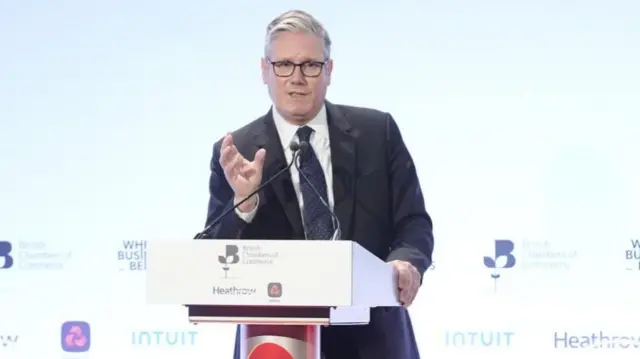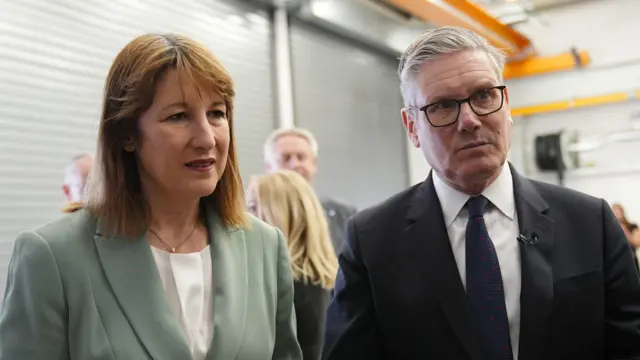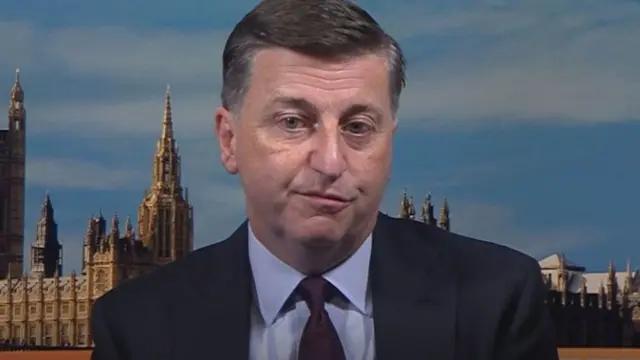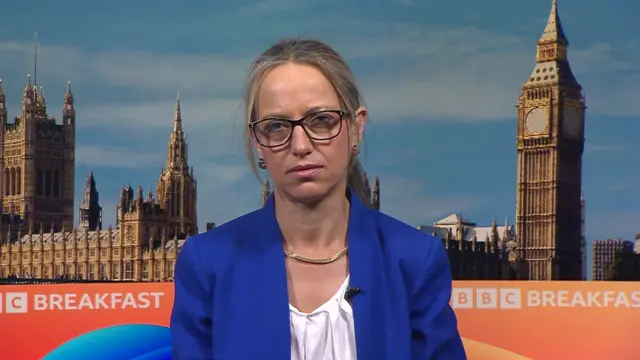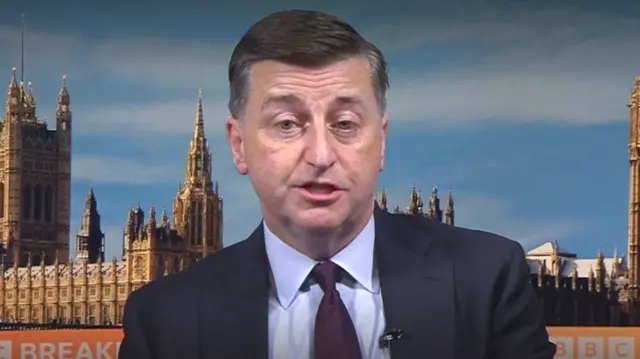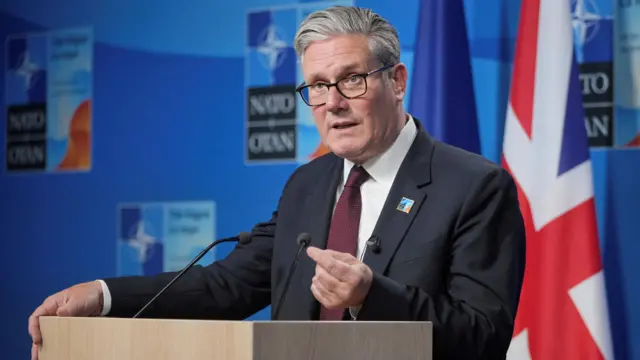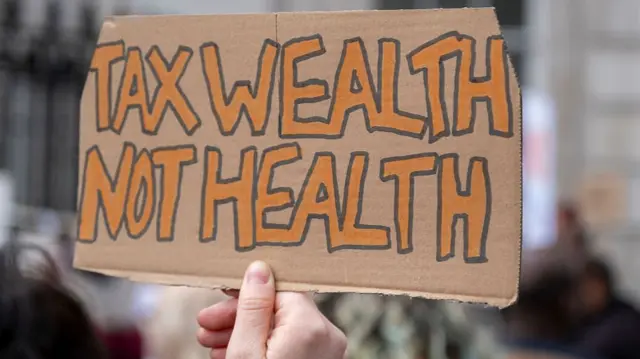'Britain defiantly open for business': Starmer sets out new trade strategypublished at 10:03 BST 26 June
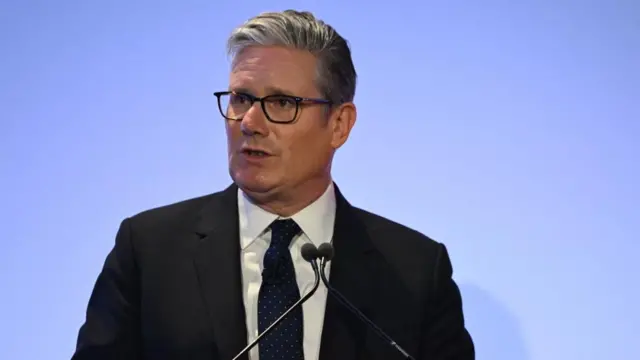 Image source, PA Media
Image source, PA MediaKeir Starmer has just wrapped up his speech at the British Chambers of Commerce (BCC) conference in Chelmsford.
He didn't mention the wrangling over his government's proposed welfare changes, and stuck solely to business and trade.
For now, here's a look at the key bits on trade:
- 'I'm fighting for you': Stamer unveiled a new vision for trade aimed at boosting exports and protecting UK companies, telling businesses he would "back them to the hilt" as they face a "more volatile world"
- Not going anywhere: "We live in a different world now and we need to recognise that," he said, referencing Donald Trump's sweeping import taxes
- When life gives you lemons: The PM insisted, however, that "this is a great moment" for British trade - and that recent deals struck with India, the US and EU have "restored our identity"
- 'Defiantly open for business': Starmer also suggested he would pursue a series of small deals - namely, on clean energy and digital - alongside these large international agreements
- On defence: He told the BCC conference that "most importantly, in this uncertain and challenging world, we will also give ourselves new powers on trade defence"

